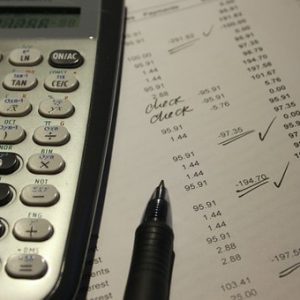Preparing for the end of year tax: Top tips to stay ahead
Making sure you’re prepared for the end of the tax year is important to keep track of your finances and avoid any late penalties with filing your tax return. There are countless benefits to being proactive with your tax returns and submitting early. Preparing for the end of tax year is the best way to make the most of these advantages.
Keep reading to get our best tips to prepare for the end of the tax year.
End-of-year tax dates in the UK
When you see the phrase end of the tax year, it’s probably referring to the personal tax year which occurs between April 6- April 5th the following year.
Business owners often start off as sole traders or partners in a partnership. Their tax status will be classified as self-employed. With the end of the tax year approaching, notice will be sent requiring you to file an income tax self-assessment tax return for that particular year. The deadlines for these are:
- To file a paper return – October 31st
- To file an online return – January 31st
Eventually, it would be sensible to start running your business as a limited company. By doing this, you can create a separate legal ‘person’ that is taxed separately from yourself and any co-workers.
What about Corporation Tax?
There are a couple more dates you need to know about with Corporation Tax. The tax year for Corporation Tax runs from 1st April- March 31st the following year. It is also known as the ‘fiscal year’ or ‘financial year’.
If you are the director of a company, the end of the personal tax year is still important, particularly if a section of your pay packet consists of the dividends from the company, which are liable for income tax. All directors need to complete a personal tax return annually.
How can you prepare for income tax and the end of the tax year?
Preparing for the end-of-year tax return should be an ongoing process rather than a last-minute job. These are the kinds of things you can do to prepare:
Filing paperwork as it arrives
Starting now is great, but starting afresh on April 6th will save you a huge job at the end of the tax year.
After deductions for expenses, self-employed business owners are taxed on their business profits.
For this to be tracked accurately, you need to access each and every business transaction your company is involved in. During the early days, these transactions may be small in numbers. After a while it’s inevitable that statements and invoices begin to mount up, meaning if paperwork is not organised, it will only increase.
An arch file is the simplest solution. Subdivide your outgoings and incomings with documents stored in date order. This can make all the difference in time (money), being wasted on hunting them down at the end of the tax year.
Keep your books smarter
In the early stages of your business, a simple spreadsheet may have been all that was required for a transaction summary. Setting aside a week to review transactions and payments is beneficial from a tax organisation viewpoint as well as keeping on top of unpaid customer invoices that can cause cash flow issues. As business picks up and bookkeeping begins to take up a larger portion of your valuable time, it might be the right time to invest in an accounting software solution. Here are 5 of the best.
Work out deductions right now
Don’t leave it until the first week of April to figure out travel costs, phone bills, capital allowances and overdrafts. Start thinking as early as possible to determine how much you have actually spent working on your business during the past year.
If your income is less than £82,000, you can choose to work out your expenses and income for your Self Assessment tax return via cash basis accounting. You will need to have a record of all business expenses and income over the year. A major benefit is it’s only taxable for income received and not on the invoices that have been issued but left unpaid.
Your end-of-year tax preparation checklist
We recommend following this checklist on the first day of the new tax year to ensure that your books are kept up to date in preparation for the following year.
- Keep your receipts – If you don’t, you may be miscalculating how much it’s costing you to run your business.
- Get organised – Implement some of the strategies discussed in this article.
- Get advice: As transactions become more complex with the growth of your business, having the right accountancy advice can help you save in the long run. At Alexander & Co, our expert team is here to guide you through the complicated web of tax and VAT rules.
Make sure you’re covered with Alexander & Co
There’s no better preparation than getting an award-winning accountancy firm on board to assist you with tax matters and bookkeeping. Our expert team is on hand to assist you in growing your business and making sure you are paying the correct amount of tax.
Get in touch with our team today to find out how we can assist you.




